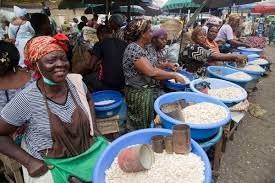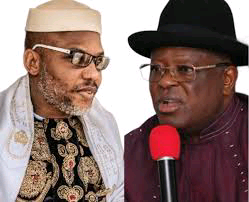Nigeria’s Funeral Industry can Create 1 Million Jobs annually- Apams

Dr Kevin Chukwumobi is the CEO of Apams Funeral Ltd- West Africa’s biggest funeral brand.
He Marks his 54th birthday recently and had a chat with the media. Excerpts
How Evolved is the Funeral Industry in Nigeria?
The funeral industry is still developing in Nigeria. It is not as big as what you have in UK and US. Funeral services is a $20 billion industry in the US, and the industry in the UK is worth £3 billion. Most of the funeral companies are multinational, and some like Service Corporation International and Dignity PLC are even quoted. The largest funeral company in the US is worth over $10 billion and has more than 2,000 locations across the country. In the UK, the largest company is worth £283 million and has more than 800 offices. In comparison, Nigeria is far behind this level of industry development.
What would you attribute this to?
I think it can be attributed to the wrong perception Nigerians have about the funeral industry. It is shocking that in the 21st century, people still believe that the funeral industry is driven more by superstition than by innovation. Unfortunately, this has deterred professionals from entering the funeral industry like they do in other sectors. Our industry does not attract the best professionals, and this is coupled with the negative societal perception of the industry.
What is being done to change this perception?
We have worked to glamorize the industry. In Apams, The way we have positioned our company has continued to attract young and talented Nigerians, and we offer competitive salaries that are comparable to what is obtainable in other industries. I believe we are among the few companies that are trying to operate the funeral business as a corporate organization. We have offices in almost all southern states in Nigeria. We equally have offices in Abuja and Lagos and our corporate headquarters is located in Onitsha, with employees across various departments and a well-organized organizational structure, equipped with the latest technology.
You have mentioned the worth of the industry in the UK and US. What is it worth in Nigeria?
We don’t have specific statistics on the Nigerian funeral industry, but it is growing rapidly. It may not be as large as the industries in the US and UK, but I believe we will get there. Some of our cultural and religious practices do place limitations on the industry, but overall, we are making good progress.
For instance, APAMS has about 18 offices scattered all over Nigeria with direct and indirect staff working with us .I don’t think there is any other funeral company in Nigeria that is as large as this.
What do you think could be done to make our funeral industry begin to measure up to the ones abroad?
Rome wasn’t built in a day. Some African countries, like South Africa, are doing very well in this industry already. I think the level of civilization contributes to how people perceive the industry. The more civilized the society, the more they understand that this is a service industry and nothing more. As the larger society begins to appreciate the industry, it will become more appealing to the working class and young Nigerians. Eventually, schools will start offering courses in funeral services, as is the case in some Ivy League universities abroad.
One of the major arguments against funeral companies is that it appears these companies pray for people to die to get patronage.
That’s a misconception. Doctors do not pray for people to get sick? Soldiers do no pray for war, or do the police pray for crime in the society so they can be working? In our case, as funeral service providers, we don’t pray for people to die. Funeral services are not the only service providers at a funeral. Whether we pray or not, people must die, and people must get these services. It is our wish that people live and die at a good old age so their children can give them befitting burial.
People have also criticized the expensive burials and the superstitious practices in the industry.
There will always be an expensive side and a cheap side to almost everything in the world, whether they are weddings, clothes, education, or burials. The expensive and cheap options exist.
Another argument is that people allow their loved ones to suffer while they are alive but then provide them with lavish burials when they die.
In most families where people engage in expensive burials, they are often just celebrating the legacies of their deceased loved ones. They have taken good care of these persons while they were alive, and because they know they won’t see them again, they decide to pay their last respects in a way that will help them cope with the pain of losing their loved one.
What do you say about the call to stop expensive burials?
I have said this before, in some cultures, burials have become an industry that even drives tourism. In Igboland, for example, burials drive a lot of economic activities, including catering, the textile industry, photography, event planning, hospitality, and printing, among others.
What do you suggest can help practitioners in your industry grow?
The only thing that can help practitioners in the business grow is innovation. You must keep innovating until you stop running the business.In my case, I keep improving, and I keep telling my workers that I have not even scratched the surface compared to what is obtainable elsewhere.
Are you proud of what you do?
I am very proud of my work. Being proud of what I do is an understatement. I am adding value to society in a legitimate and responsible way. I would want to do this business again and again.It has given me a lot of exposure to train across the world and many opportunities to meet influential people.
How do you think the industry has impacted the Nigerian economy?
The funeral industry has provided jobs to many Nigerians. It can provide over 1 million jobs to Nigerians annually. It also helps to ease the burden of the bereaved, thereby contributing to people’s well-being and mental health.









